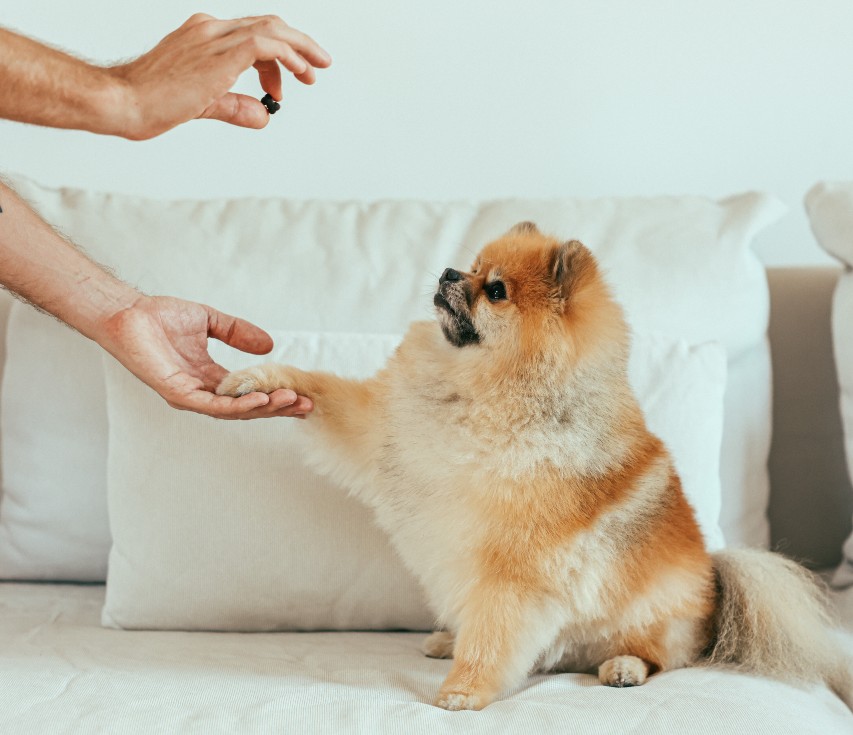When Does My Puppy Deserve a Treat?

If you are a long-time dog owner, the painstaking task of teaching your pet something new may be all too familiar. Dogs rarely feel motivated to learn a new trick without dog treats being used to incentivize them. Treats for puppies can not only help you in training your canine but also serve as a yummy and nutritious snack.
To help you make things easier for you, we have laid out some buying tips.
What Type of Dog Treats Are There?
Soft Treats
Soft treats are not as hard or dry in texture making them easier to chew. If you have a puppy with teeth that aren’t as developed as an adult dog, then soft treats are definitely what you should focus on. Dogs that are experiencing dental issues are also recommended to only take soft treats until they are fully healed.
Natural Chews
One of the primal instincts of any dog is the urge to chew. This urge, if not directed at the right items, can result in disastrous effects. Natural chews help solve this problem by giving dogs something to chew on that is also good for their health and nutrition. Some natural chews available nowadays include sweet potato chews, beef bone chews, and antlers.
Freeze-dried
Some treats for puppies that have been gaining popularity in recent times are freeze-dried dog treats. These dog treats have undergone the process of freeze-drying, where all moisture is removed from the ingredient beforehand. These treats are usually lower in calories and higher in nutritional value as they are usually made of just a single ingredient. This makes them the most popular choice when it comes to training, as even feeding your dog multiple treats won’t be too damaging to their health.
Factors to Consider When Picking Dog Treats
Age of your dog
Depending on the age of your dog, the ideal treat for them will change. If your dog is a small puppy of just a few months, then make sure to select a dog treat that is not as rough or difficult to chew. Other than age, the breed and size of your dog also matter. An adult poodle may require a softer dog treat than a dachshund puppy, so be mindful of this too.
History of Disease
If your dog has any kind of history relating to their health or past diseases, then taking a trip to the vet should be your first priority. Don’t buy any dog treats without consulting your vet first, as the ingredients may not be well suited for your dog and result in them getting sick.
Ingredients of the Treat
The ingredients of the dog treat you opt for are a very important factor to consider. Always check that the ingredients are healthy and will not cause your dog any health-related issues. Go for natural options rather than artificial flavorings, and fewer ingredients are always better.
Texture and Hardness
The texture and hardness of dog treats are what will attract your dog to them in the first place, so make sure it is in accordance with your dog’s preference. If the treat is too hard, then they will not be able to chew on it and may even damage their teeth in the process. If it is too soft, then they won’t want to take it, reducing the effectiveness of your training.
Final Thoughts
In the above section, we have outlined many things you should consider when buying treats for your dog. Follow all these guidelines and you and your dog will surely be much more enjoyable to train.
